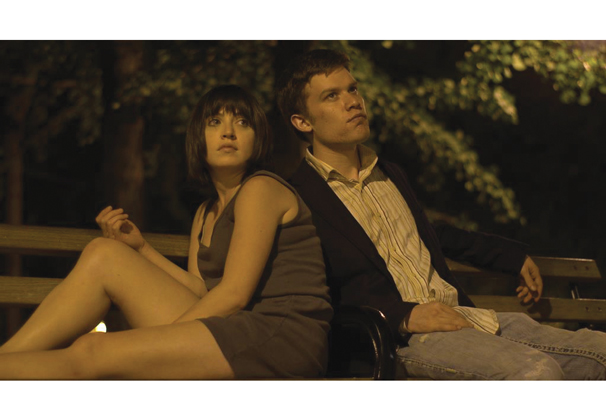
While family drama is a familiar trope in many films, Dan Sallitt’s “The Unspeakable Act” hopes to explore a darker side of the theme. The small film confronts a big topic, diving in right from the opening lines: “I had somehow thought that [my brother] and I had an unspoken agreement that we belonged to each other, which was really pretty stupid of me.” This line is spoken by the character Jackie Kimball, who utters these words as the film begins to investigate the incestuous relationship of a brother and sister during a turning point in their lives.
“Unspeakable” is a character study of Jackie. The film follows her during and after her older brother Matthew’s final summer before college. The summer is brief, and Matthew heads to Princeton University, leaving Jackie to explore life without their relationship.
Though deemed an incest mo-vie, “Unspeakable ” does not depict a forbidden relationship between a brother and sister. Jackie’s love for Matthew is pure, and her fantasy does not involve a sexual relationship, rather the ability for them to be together. He is aware of his sister’s feelings and even discusses them with her, yet he never reveals his feelings. He does not discourage Jackie, as he holds hands with her in public, but he also feels free to date other girls.
Matthew is a fascinating character. He acts robotic and distanced, which leaves the audience to wonder whether the actor’s portrayal is profound or if he is a poorly written character portrayed by an uncertain actor.
Despite the unfamiliar territory, “Unspeakable” is dull. Although it is only 91 minutes long, those minutes crawl by. Most of the monotony stems from Sallitt’s use of voice-overs. At times, it is appropriate and even a strength for the film, but at other times the technique turns the film into a slideshow of the family home played to the sound of Jackie ramblings.
Minutes are wasted on voice-overs, extraneous shots and auxiliary plotlines. While these devices are not distracting, they are unnecessary. For example, the audience accepts that there is not a father, and the source of the mother’s income is questionable — it wastes time to even mention them.
Sallitt attempts to bring life to the film with characters’ unprovoked outbursts of anger, and he succeeds in scenes involving Jackie and her friends. The director deserves praise for either knowing how adolescent girls think or for loosening the reins on his actresses and allowing them to improvise.
Tallie Medel, who plays Jackie, shines in the therapy sessions. She embodies the awkwardness of an insecure teenager, but her performance matches her brilliant, sometimes comedic lines.
“Unspeakable” is a real and careful film, but ultimately, it is a forgettable one. Sallitt’s vision is muddled, but he and Medel demonstrate enough promise to give hope to future projects.
Marissa Elliot Little is a contributing writer. Email her at [email protected].
























































































































































